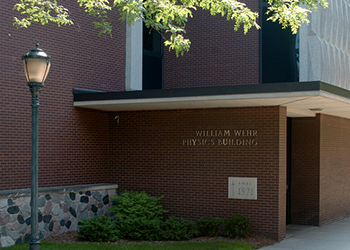POLITICAL SCIENCE 124: ELECTIONS, PARTIES AND POLITICAL OPINION
- SUMMER 2003
- John McAdams
- Office: WW 417; (414) 288-3425
- Office Hours: MTWTH 11:30 – noon, MTWTH 3-4
Course Objectives
The central question of the course is whether voters are rational. More specifically: whether they are capable of the behavior necessary to exert control of the government through the electoral process. Topics include political socialization, public opinion and the role of the media (can voters be manipulated?), ideology, political knowledge, issue positions, party identification, and why people vote the way they do. Emphasis is on national presidential and congressional races, with some attention to voter turnout and participation.
Text
Robert S. Erikson and Kent Tedin, American Public Opinion (6th Edition)
Requirements
Two papers, based on analysis of survey data. One will assess the shape of public opinion on some important public issue looking at different polls and different ways of asking the question. The other will assess the effect of a demographic variable you choose (race, income, gender, etc.) on particular political attitudes. Data will be obtained from published sources at Memorial Library, and from Web sites. More detailed instructions will be posted on the course web page. The first paper will be due on May 29th, and the second on June 12th.
Two exams during the term (announced a week in advance) and a final will all contain both objective and essay material. There will be a study guide and a review session for each exam. Grade: each exam, 20%; final, 30%; each paper, 15%.
All readings are required. All besides the textbook will be available in a xeroxed packet.
Course Outline
- The Study of Public Opinion
- Erikson & Tedin; Chapters 1-2.
- Seymour Martin Lipset, "The Wavering Polls," The Public Interest, Spring 1976.
- Fred Barnes, "Can You Trust Those Polls?," Reader's Digest, July 1995.
- Where Attitudes Come From
- Political Socialization
- Erikson & Tedin; Chapter 5.
- Social Groups
- Erikson & Tedin; Chapter 7.
- Angus Campbell, et. al., The American Voter, Chapter 12, 13.
- John C. McAdams, "Testing the Theory of the New Class," The Sociological Quarterly, March 1987.
- Self-Interest
- David O. Sears, et. al. "Self-Interest vs. Symbolic Politics in Policy Attitudes and Presidential Voting," American Political Science Review, September 1980.
- The Media
- Erikson & Tedin; Chapter 8.
- S. Robert Lichter, Stanley Rothman, and Linda Lichter, "Media and Business Elites," Public Opinion, October/November 1981.
- Robert Lichter, "The Media's Typical Homeless are Anything But," The Wall Street Journal, December 14, 1989.
- Armin Brott, "The Facts Take a Battering," The Washington Post National Weekly Edition, August 8-14, 1994.
- Thomas E. Patterson & Robert D. McClure, The Unseeing Eye, Chapters 5-7.
- Attitude Dimensions - Ideology
- Erikson & Tedin; Chapter 3,4
- Elite Groups
- Barry Sussman, "Elites in America" (a Washington Post reprint)
- The Voter at the Polls
- Presidential Elections
- Erikson & Tedin; Chapter 9.
- Voters and Parties
- Erikson & Tedin; Chapter 11.
- James Sundquist, The Dynamics of the Party System, Chapters 1-2.
- Congressional Elections
- Erikson & Tedin; Chapters 10, 12.
- Edward Tufte, "Determinants of the Outcomes of Midterm Congressional Elections," American Political Science Review, September 1975.
- "Is Campaign Finance Reform Necessary?" in Herbert M. Levine (ed.) Point-Counterpoint (Sixth Edition).
- "Should Campaign Finance be Reformed?" in George McKenna and Stanley Feingold (eds.), Taking Sides (Eleventh Edition).
- "Campaign Finance Law Provisions," Congressional Quarterly Weekly Report, May 18, 2002.
- Lorraine Woellert and Lee Walczak, "Campaign Reform's Dangerous Aftershocks," Business Week, April 8, 2002.
- Ron Faucheux, "New Campaign Law: Whose Ox?," Campaigns & Elections, July 2002.
- Summarizing
- John McAdams, "Public Opinion as a Constraint on Political Elites," in Shay, Arguments in American Politics.
